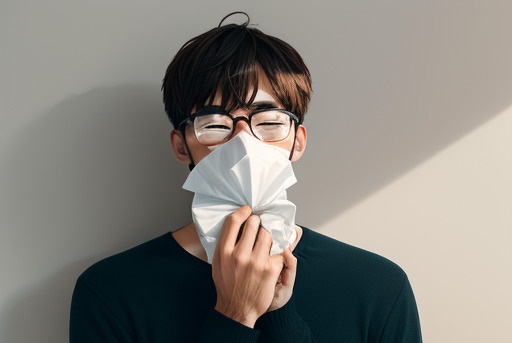Have you ever wondered why your nose starts to bleed? I often have nosebleeds, so I was curious about it. I thought there might be a connection between nosebleeds and fatigue and so on. Let’s find out quickly!
1. Dry Air
You know that feeling of a dry mouth when you’re tired? The same thing can happen to your nose. When you’re tired, you might end up breathing through your mouth more than usual. This can lead to the insides of your nose getting all dried up. And when those delicate tissues get too dry, they become more prone to irritation and bleeding.
2. Blood Pressure’s Role
Tiredness can sometimes mess with your blood pressure. If you’ve been resting for a while, and suddenly you stand up real fast. Your body might struggle a bit to adjust, and this quick change in blood pressure could contribute to a nosebleed.
3. Nasal Congestion
You know those times when you’re so tired you can barely keep your eyes open? Your body might be fighting off something like allergies or a cold. This can lead to a stuffy nose, and that congestion can put extra pressure on the blood vessels inside your nose. Too much pressure can cause those vessels to break and – you guessed it – hello, nosebleed!
4. Fragile Blood Vessels
Think of your blood vessels as little pipes carrying blood around your body. When you’re tired, these pipes might not be in their best shape. They could become weaker and more prone to breaking, which can lead to nosebleeds.
5. Trauma? Scratching?
Ever find yourself rubbing your tired eyes or scratching your nose when you’re exhausted? That innocent scratching could actually be causing some trouble. Your nose’s blood vessels are fragile, and a little scratch can irritate them and make them bleed.
Don’t worry, there are ways to help prevent those pesky nosebleeds:
- Humidify Your Space: Adding moisture to the air with a humidifier can keep your nose from drying out.
- Stay Hydrated: Drinking water helps keep your nose and body hydrated.
- Hands Off: Try not to pick your nose or scratch it, especially when you’re tired.
- Gentle Nose Care: If you have crusts or dried blood, use a saline spray or a dab of petroleum jelly to keep things moist and comfy.
- Saline Rinses: These rinses can clean your nose and keep it hydrated.
If your nosebleeds don’t go away, get worse, or bring along some buddies like dizziness or headaches, it’s time to talk to a doctor. They’ll be able to figure out what’s going on and help your condition better.
So, stay hydrated, keep your nose comfy, and don’t hesitate to get help if those nosebleeds become a bit too much to handle. Welcome the clean air!

